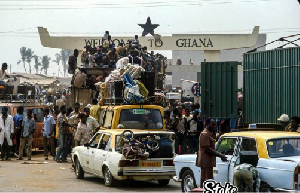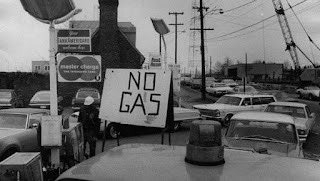Mercy360 Blog of Saturday, 11 January 2025
Source: Mercy Mensah
Ghana Must Go: A Story of Mass Deportations in West Africa

The phrase "Ghana Must Go" carries historical significance in West Africa. It dates back to 1983, when Nigeria, experiencing an economic depression, evicted more than 2 million unauthorized migrants, including over 1 million Ghanaians. This mass expulsion was a watershed moment in the relationship between the two countries, leaving a lasting effect on regional history.
Nigeria's oil industry was growing in the late 1970s and early 1980s, bringing migrants from all across West Africa. Many Ghanaians fled their home country due to economic hardships and political instability, seeking better prospects in Nigeria. However, Nigeria's fortunes changed abruptly when global oil prices fell in the early 1980s. The subsequent economic crisis caused significant unemployment, inflation, and widespread unhappiness among Nigerians.
The administration, led by President Shehu Shagari, sought to alleviate mounting tensions by pursuing unauthorized migrants, whom locals blamed for taking employment and depleting public resources. In January 1983, Shagari issued an order ordering all unauthorized immigrants two weeks to leave Nigeria or face deportation.

The announcement sparked turmoil as millions of refugees tried to depart. Ghanaians, the largest group of migrants, were treated particularly harshly. Many people packed their possessions into the now-iconic red, blue, and white checkered plastic bags, which became associated with the statement "Ghana Must Go." These bags have subsequently become a representation of displacement and resilience.
The travel back to Ghana was exhausting. With insufficient transportation and minimal help, many migrants walked long distances, braving hunger and tiredness. Tragically, some died along the journey.
The deportation strained relations between Ghana and Nigeria, although both governments ultimately sought reconciliation. The unexpected homecoming of more than a million people exacerbated Ghana's already difficult economic situation. However, the deportees brought back talents and experiences that helped Ghana recover.
Today, "Ghana Must Go" is viewed as a warning story about the risks of scapegoating migrants during economic downturns. The checkered bags, originally symbols of displacement, have evolved into a cultural relic symbolizing tenacity and flexibility in the face of adversity.
This gathering serves as a poignant reminder of the interwoven histories and shared concerns of West African nations.














